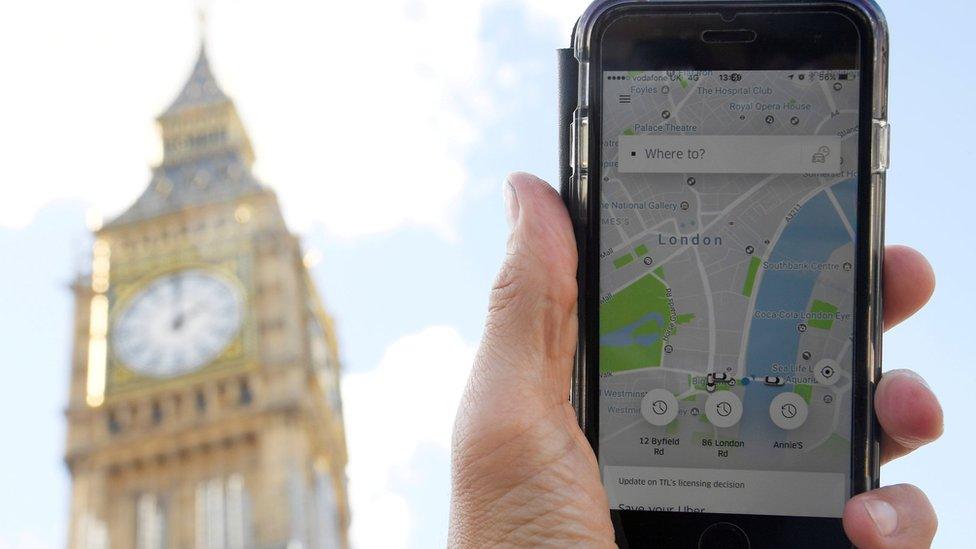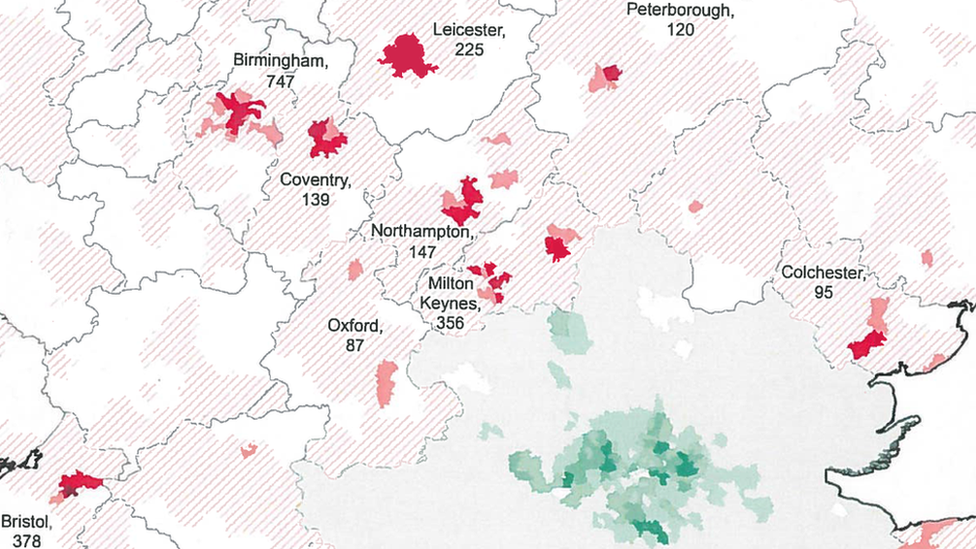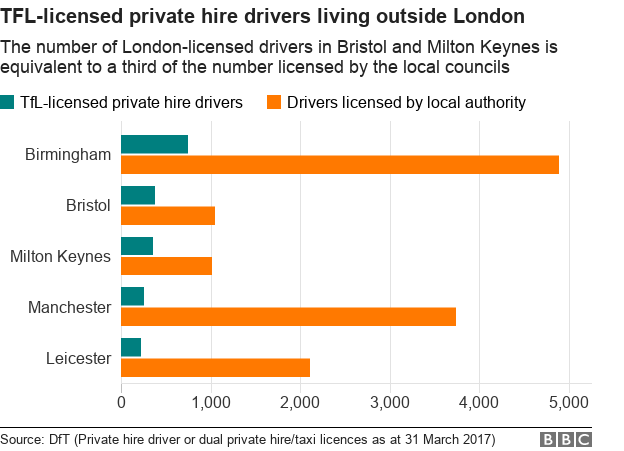London-registered minicabs 'working in other cities'
- Published

Drivers for private hire operators like Uber can take jobs far from where they are registered
More than 3,600 Transport for London (TfL)-registered private hire drivers have addresses as far away as Bradford and Cardiff.
Letters released by the Mayor of London's Office show there were 747 TfL-registered minicab drivers in Birmingham and 378 in Bristol.
It means local councils in those areas have no control over drivers' licensing or the number of cabs on their roads.
Sadiq Khan has asked the government for greater licensing powers.
He is calling on the Department for Transport (DfT) for powers to cut the number of licences issued in London and for minicab journeys to begin or end where the driver is registered.
A TfL map included in the letters, and released after a BBC freedom of information request, shows how far these drivers are from the capital.
The DfT said it was monitoring concerns about private hire licensing.

Analysis: BBC London Transport Correspondent Tom Edwards
It will come as no surprise to many that minicab regulations are again being shown up as unfit for purpose.
There is meant to be something called a "triple licensing lock" where a job from a passenger can only be accepted if the vehicle, the driver and the booking are under the jurisdiction of the same authority - in this case TfL.
But the lock doesn't work anymore, because minicab apps like Uber means drivers can quite legitimately live and work anywhere in the UK even though they are registered under TfL. You can use the Uber app anywhere to find a car: in the past you'd ring a local number or go to a local shop.
We now have a situation where local authorities across the country, as far north as Blackburn, Bradford and York, have no jurisdiction over TfL minicabs in their own towns.
TfL has even sent officials to places such as Brighton because there are so many TfL drivers there.
The mayor wants a change in the law so the journey has to start or end in the area the minicab is licensed. But at the moment, technology has again outpaced regulation.


London-registered drivers are living far from the capital
Steve Wright, chairman of the Licensed Private Hire Car Association, criticised the mayor's proposed ban on cross-border hiring, saying it would make the current situation worse.
"It would be overly prohibitive, and wouldn't solve the problem of app users showing themselves available in areas far from where they are licensed," he said.
"It would also have a catastrophic effect on the environment, as drivers would have to return to the area they were registered to start new jobs, leading to them driving many dead miles."
A spokesperson for Uber said it would be introducing changes that mean in future drivers will only be able to use the app within the region in which they are licensed.

A mayor of London spokesperson said: "It's time the government gave Sadiq the power to cap these numbers and also urgently end the ridiculous practice of drivers being licensed in one area with the sole intention of working elsewhere in the country."
The DfT said: "The licensing of taxis and private hire vehicles is a matter for local authorities. However we are aware of the concerns regarding the changing landscape of the market, and continue to monitor this."
- Published26 January 2018
- Published29 November 2017